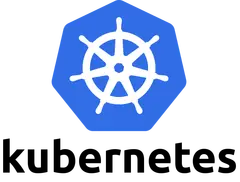
Enroll in the best Kubernetes training certification in Nashik to become an industry expert every employer wants to hire. Often abbreviated as K8s, Kubernetes certification training has been gaining quite a lot of popularity in the market these days. Well, why won’t when it is bringing some amazing job opportunities for our young minds? It is one of the few open source systems for automating deployment, scaling, and management of containerized applications, making it quite a task for businesses. The lack of skilled technicians leads to a higher pay scale for certified applicants in the job market. Although it is often considered similar to Docker, but let us make it clear for you since you are considering it as a certification course for you. So, basically, docker runs on a single node, where Kubernetes is designed in a way to run on the cluster. You can use docker without Kubernetes but, when it comes to using Kubernetes you will require a container runtime to orchestrate. As soon as you pass CKAD (Certified Kubernetes Application Developer exam), you will be capable to build, configuring as well as exposing cloud native applications for Kubernetes. Sounds interesting right? So let us know what you will be learning with the Kubernetes certification course in Nashik.
A certified Kubernetes developer is expected to handle all the tasks related to Kubernetes and this makes it important for us to teach each one of them to you. So our team of experts have designed the best Kubernetes certification training in Nashik to meet the industry requirements. This course consists of a total of 10 different modules, each targeting an important aspect of the training. So we begin with scheduling. Under this module, you will learn to use label selectors to schedule Pods, understand the role of daemon sets, how resource limits can affect Pod scheduling and configuring them, manually schedule pods without a scheduler, and also learn to configure the Kubernetes scheduler.
The second module is about logging or says monitoring. You will be learning ways to monitor all cluster components and applications. This module will also give you a brief on managing components and application logs. In the next module, you will understand deployments and ways to perform rolling updates and rollbacks, configure and scale applications, and understand the primitives necessary to create a self-healing application. In the fourth module of this training, you will learn in detail about cluster maintenance. This module will help you understand the kubernetes cluster upgrade process, facilitate the operating system process and also ways to implement back up and restore methodologies.
You will learn about security in the fifth module. In this module, you will learn ways to configure authentication and authorization, Kubernetes security primitives, configuring network policies and other important technicalities related to Kubernetes security. The next that is the sixth module will give you a brief understanding of storage. This includes understanding and creating persistent volumes, accessing them, Kubernetes storage objects as well as configuring applications with persistent storage.
You will learn about security in the fifth module. In this module, you will learn ways to configure authentication and authorization, Kubernetes security primitives, configuring network policies and other important technicalities related to Kubernetes security. The next that is the sixth module will give you a brief understanding of storage. This includes understanding and creating persistent volumes, accessing them, Kubernetes storage objects as well as configuring applications with persistent storage.
Since networking always plays a crucial role, our Kubernetes training involves an entire module about networking. This will help you understand networking configuration on the cluster nodes, Pod networking concepts, service networking, and deploying as well as configuring the network load balancer. You will also know how to use ingress rules, configure and use the cluster DNS as well as CNI in this module itself.